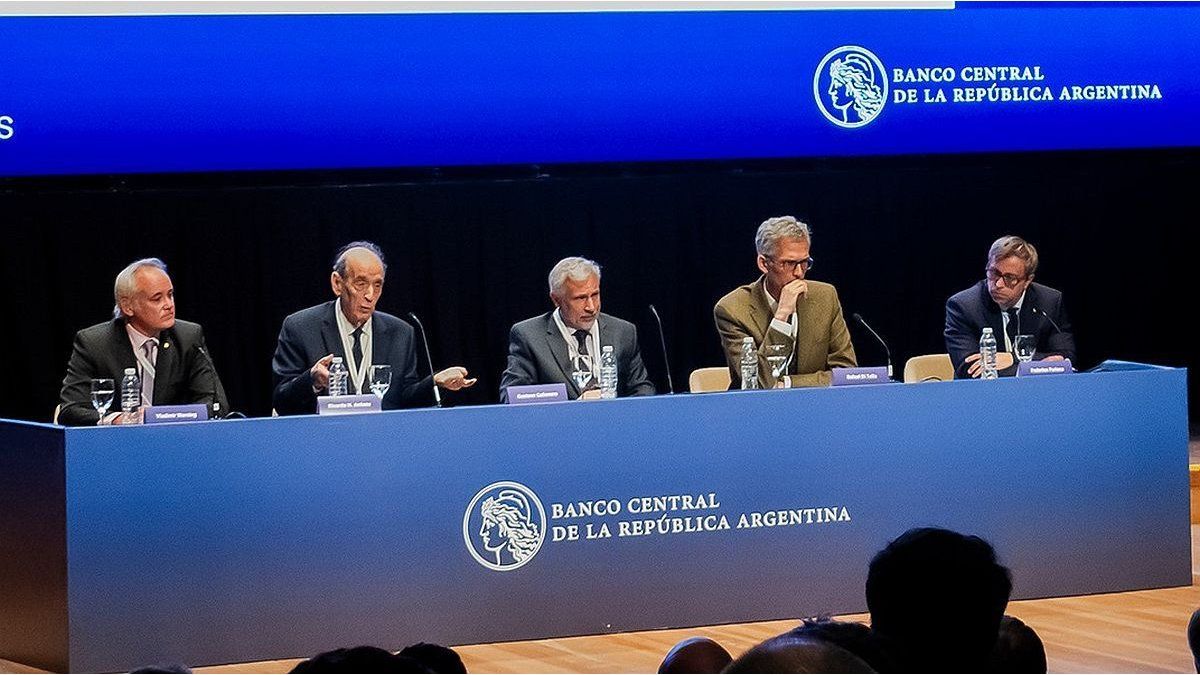According to the views of three top-level Argentine economists, the economic team of Luis Caputo is on track to achieve success in the medium term in the battle against inflation. But for this they recommend not lift restrictions on access to the dollar immediately.
This was pointed out by the consultant Ricardo Arriazu; the former vice president of the Central Bank, Gustavo Cañonero; and the Harvard professor and researcher, Pablo Di Tellawithin the framework of the Banking and Monetary Conferences organized by the Central Bank.
Before some 1,700 people gathered in the La Ballena enclosure, of the Libertad Palace, The opening of the meeting was led by the president of the BCRA, Santiago Bausili, who said that the first of the achievements of the current plan has been “anchoring inflationary expectations”.
Ricardo Arriazu highlighted that “The inflation rate is converging towards devaluation” of the peso, of 2% per month and he assured that “in wholesale inflation this is clearer.” In this way, he said that “to go down even further, the devaluation rate must be lowered.”
In this regard, he rejected criticism from analysts who maintain that the exchange rate is backward and that is why he rejected the need to apply a devaluation. The analyst assured that in Argentina there are two units of account, the peso and the dollar. While the former can be stabilized with fiscal and monetary policy, andIn the second “we must intervene until it is no longer a unit of account.”
However, he suggested going “lifting the stocks little by little” so that at some point in 2025 “open everything and let them do whatever they want” with the green currency.
Gustavo Cañonero, for his part, agreed that the government does not have to devalue and maintained that “the government is building credibility in the adjustment at least until the parliamentary elections of 2025. He considered that the government will be able to “break the floor” of 3.5% monthly inflation with difficulty, although he warned about pending relative price adjustments. Cañonero said that Argentina “is playing against history, which is what makes us think it is going to fail.” The former vice president of the BCRA also considered necessary a “gradual exit from the stocks,” perhaps starting with making the rules for the purchase of hoarding dollars more flexible.which may have no impact on the balance sheet and may give a clue as to what price the market would be giving it.
For his part, Pablo Di Tella presented a study carried out on 56 cases of successful disinflation programs from 1960 to 2019 which reflects that the sequence of the plan that the government is carrying out coincides in most aspects with successful programs.
The study indicates that in the first stage of these plans inflation remained above 10% and then at the end they were permanently below 10%. The study indicates that fiscal discipline was maintained in all of them. The plans that failed were those that ended up being devalued.
Di Tella warned that in all cases in which there was a successful disinflation program, the consequence was an increase in unemployment as is currently occurring.. “I’m surprised it’s not higher,” said the economist, who considered that the rate of people without work will rise in the coming years.
In this regard, the vice president of the BCRA, Vladimir Werning, who moderated the panel along with director Federico Furiase, He pointed out that given the pressure from the markets due to the lifting of the stocks, “policy makers, rather than managing expectations, have to manage anxieties.”
Source: Ambito




